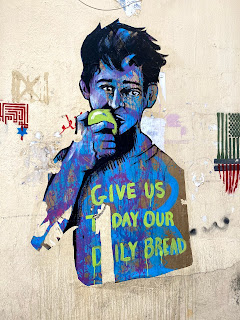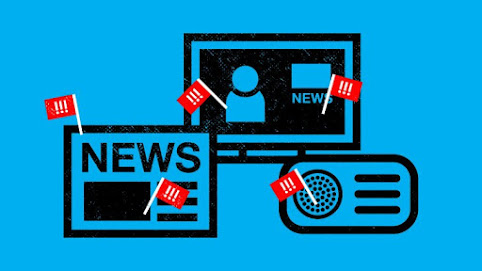Lebanon & the Economic Crisis: What Happens If Subsidy on Essential Medication is Lifted?
Following the economic crisis in Lebanon and the sharp devaluation of the Lebanese Lira, Banque du Liban (BDL) began subsidizing fuel, wheat, and medical supplies including pharmaceuticals. This was done through maintaining importer rate at LBP1,515 per $1, and LBP3900 per $1 for a basket of consumer goods (Mokuo & Jaradat, 2020) as a means to mitigate the effects of the black market. According to caretaker Finance Minister Ghazi Wazni, Lebanon will no longer be able to import basic goods past May of 2021 due to delays in launching a subsidy reduction plan; which is expected to save approximately half of the current $6 billion in annual spending on subsidies (Arab News, 2021). These delays are costing $500 million in foreign currency reserves per month. The current subsidy reduction plan includes cutting down the list of 300 subsidized foods by two thirds, reducing subsidy on fuel and medicine, and roll out of a ration card program for the families most hit by poverty; estimated to be at approximately 800,000 persons (Habib, 2021).
Considering that there are no social safety net programs put in place for the most vulnerable households, subsidy removal will be disastrous (Perry, 2020). That being said, Lebanon’s subsidy system has been questionable by politicians and policymakers, because its universal nature does not specifically target the most vulnerable households (Perry, 2020). In fact, a recent analysis conducted by UNICEF revealed that “up to 80% of subsidies may actually benefit the wealthiest 50% of the population, with only 20% going to the poorer half [...] since better-off households consume more of the subsidized items (and) end up getting the lion’s share of the benefits”. (Mokuo & Jaradat, 2020). So, although the subsidies have cushioned the blow for many households in Lebanon, this by no means is an indication of equitable, sustainable spending by the Lebanese government. Recommendations warrant a greater focus on the creation of social safety net programs that have the ability to save those most in need upon subsidy lift, and that are able to be sustained through simple aversion of cost from the current subsidy program to building a concrete, fixed social safety net program (Mokuo & Jaradat, 2020).
As of March, 2021, Lebanon signed a $246 million loan for a 3-year project with the World Bank that will provide cash transfers and access to social services to the most vulnerable (Bou Khater & Abi Yaghi, 2021). This project has two main aims: the first being an attempt to halt the poverty epidemic as repercussion of the economic crisis by helping approximately 147,000 households; and the second being to retain 87,000 individuals of school age (13-18 years old) enrolled in public schools (The World Bank, 2021). There was some concern, however, regarding why the aid will be transferred to and has to be repaid by the Lebanese government in US dollars, but distributed to families in Lebanese Liras; albeit at a rate of LBP6,240 per $1 (Blom Bank, 2021; Bou Khater & Abi Yaghi, 2021; Zovighian, 2021). Shortly later however, a letter addressed to the caretaker Finance Minister claimed that all aid from international organizations, such as the World Bank and UN agencies is to be distributed in US dollars (Blom Bank, 2021).
Next is discussing the experiences of other countries who have suffered from dire economic crises and the effects of lifted subsidies. Subsidy reduction plans limit governmental expenditure on various sectors; which also includes the pharmaceutical sector. In turn, reduced governmental expenditure toward the health and pharmaceutical sectors will result in increased inaccessibility to healthcare due to difficulties in procurement of both medicines and medical supplies (Simou & Koutsogeorgou, 2014). Here, pharmaceutical expenditures of individuals will undoubtedly increase without adequate governmental measures put in place in parallel; such as: promoting generic medicine use, using the unified medical prescription, and strengthening rationing measures and prevention of pharmaceutical stockpiling (Simou & Koutsogeorgou, 2014). In the case of Greece, the government also resorted to reducing costs through imposing restrictions on the profit margins of brand medications and reduced the cost of generics alongside an increase in taxes (McKee, Karanikolos, Belcher, & Stuckler, 2012; Vandoros & Stargardt, 2013; Vogler, Zimmermann, Leopold, & de Joncheere, 2011). This not only resulted in pharmacist strikes and public fury; but also caused pharmaceutical companies to resort to selling their products outside of Greece for search of higher profit (Karamanoli, 2014; Karanikolos et al., 2013).
On a population level, theoretically this results in higher out-of-pocket (OOP) expenditure for individuals, and delays in attending medical examination due to patient fear of unavailability of medicine and medical supplies (Simou & Koutsogeorgou, 2014). However, over time, a pattern of reduced individual pharmaceutical expenditure was seen due to individuals not being able to afford medication anymore as a result of absence of non-brand name drugs, reduced frequency of medicine use, poor drug adherence, and reduced medical check-ups (Asadi-Pooya, Tavana, Tavana, & Emami, 2016; Giannakou, Kani, Peppou, Economou, & Souliotis, 2016; Grappasonni, Scuri, Tanzi, Kracmarova, & Petrelli, 2018). This is alarming also taking into consideration that it is well documented in the literature that economic crises have negative repercussions on individual health behaviors; such as: smoking, binge drinking, overweight, and use of drugs as a result of increased risk of psychological disorders (Colell, Sánchez-Niubò, Delclos, Benavides, & Domingo-Salvany, 2015; Cornaggia et al., 2017; Mattei et al., 2017). These may contribute back into the vicious cycle of hospital readmission and medicine prescription and consumption (Davlouros, Gizas, Stavrou, Raptis, & Alexopoulos, 2013; Domínguez-Rodríguez, Mendez-Vargas, Sánchez-Grande, Avanzas, & Abreu-Gonzalez, 2014).
On a healthcare system level, subsidy lift may lead to unaffordability and unavailability of medical supplies and medications specifically administered in hospital settings; which has detrimental effects on their practices and on patients’ health (Barry, 2000; Sen, Al-Faisal, & AlSaleh, 2013). This affects the ability of healthcare systems to cater to the population for complicated health cases and during times of emergency; which is crucial now more than ever in light of the COVID-19 pandemic and increase burden on healthcare systems (El-Dahan & Francis, 2021; Kokabisaghi, 2018). Although reduction in individual pharmaceutical expenditure may result in improved organization policies regarding patient safety and monitoring (Correia, Dussault, & Pontes, 2015); the effects of non-adherence to prescribed medication and secondary prevention of disease lead to increased hospital admission and readmission (Legido-Quigley et al., 2016). All of these different factors will add additional pressure and increase the risk of further shortages and reduced patient health outcomes.
Although the horizon remains uncertain, strategies to mitigate the repercussions of subsidy lifts have been proposed thus far. For example, El-Jamal et al. (2020) have reviewed the Lebanese National Drugs Database, and have revealed that there are multiple drugs for the same illnesses at different costs that are all subsidized at the same rate. As such, they recommend that this be reduced two main drugs, taking into consideration both cost and patient safety. Moreover, they recommend strengthening rationing measures and strengthening prescription laws as a means to reduce stockpiling practices by both consumers and pharmacists. Whichever strategies are put forth, hopefully in the near future, by the government; the hope is that they do not worsen they already-worse lives of the people.
References
Arab News. (2021). Lebanon must ration subsidies before reserves run out – finance minister. Retrieved from: https://www.arabnews.com/node/1836411/middle-east
Asadi-Pooya, A. A., Tavana, B., Tavana, B., & Emami, M. (2016). Drug adherence of patients with epilepsy in Iran: the effects of the international economic sanctions. Acta neurologica Belgica, 116(2), 151–155. https://doi.org/10.1007/s13760-015-0545-6
Barry M. (2000). Effect of the U.S. embargo and economic decline on health in Cuba. Annals of internal medicine, 132(2), 151–154. https://doi.org/10.7326/0003-4819-132-2-200001180-00010
Blom Bank. (2021). Lebanon’s aid project to be distributed in dollars as
Bou Khater, L., & Abi Yaghi, M.N. (2021). Cash transfers to the ‘poor’ are not the answer. L’Orient Today. Retrieved from: https://today.lorientlejour.com/article/1254267/cash-transfers-to-the-poor-are-not-the-answer.html
Colell, E., Sánchez-Niubò, A., Delclos, G. L., Benavides, F. G., & Domingo-Salvany, A. (2015). Economic crisis and changes in drug use in the Spanish economically active population. Addiction (Abingdon, England), 110(7), 1129–1137. https://doi.org/10.1111/add.12923
Correia, T., Dussault, G., & Pontes, C. (2015). The impact of the financial crisis on human resources for health policies in three southern-Europe countries. Health Policy, 119(12), 1600-1605.
Cornaggia, C. M., Beghi, M., Mezzanzanica, M., Ronzoni, G., Vittadini, G., & Maffenini, W. (2017). Psychotropic Drug Consumption and Employment Status in Time of Economic Crisis (2007-2011). The Psychiatric quarterly, 88(2), 371–384. https://doi.org/10.1007/s11126-016-9448-9
Davlouros, P., Gizas, V., Stavrou, K., Raptis, G., & Alexopoulos, D. (2013). DES thrombosis related to antiplatelet therapy noncompliance: a consequence of the Greek financial crisis. International journal of cardiology, 168(4), 4497-4499.
Domínguez-Rodríguez, A., Mendez-Vargas, C., Sánchez-Grande, A., Avanzas, P., & Abreu-Gonzalez, P. (2014). Healthcare administration and the economic crisis: apropos of a case. Gaceta sanitaria, 28(4), 342-343.
El-Dahan, M., & Francis, E. (2021). Lebanon’s COVID-19 spike overwhelms battered hospitals and exhausted doctors. Reuters.Retrieved from: https://www.reuters.com/article/us-health-coronavirus-lebanon-idUSKBN29N1JE
Giannakou, A., Kani, C., Peppou, L., Economou, M., & Souliotis, K. (2016). The impact of economic crisis on drug consumption and pharmaceutical expenditure in Greece. Value in Health, 19(7), A662.
Grappasonni, I., Scuri, S., Tanzi, E., Kracmarova, L., & Petrelli, F. (2018). The economic crisis and lifestyle changes: a survey on frequency of use of medications and of preventive and specialistic medical care, in the Marche Region (Italy). Acta bio-medica : Atenei Parmensis, 89(1), 87–92. https://doi.org/10.23750/abm.v89i1.7068
Habib, O. (2021). Salameh to suspend subsidy program: Wazni. Zawya. Retrieved from: https://www.zawya.com/mena/en/economy/story/Salameh_to_suspend_subsidy_program_Wazni-SNG_206256090/
Karamanoli, E. (2012). Greece's financial crisis dries up drug supply. The Lancet, 379(9813), 302.
Karanikolos, M., Mladovsky, P., Cylus, J., Thomson, S., Basu, S., Stuckler, D., ... & McKee, M. (2013). Financial crisis, austerity, and health in Europe. The Lancet, 381(9874), 1323-1331.
Kokabisaghi F. (2018). Assessment of the Effects of Economic Sanctions on Iranians' Right to Health by Using Human Rights Impact Assessment Tool: A Systematic Review. International journal of health policy and management, 7(5), 374–393. https://doi.org/10.15171/ijhpm.2017.147
Legido-Quigley, H., Karanikolos, M., Hernandez-Plaza, S., de Freitas, C., Bernardo, L., Padilla, B., ... & McKee, M. (2016). Effects of the financial crisis and Troika austerity measures on health and health care access in Portugal. Health Policy, 120(7), 833-839.
Mattei, G., De Vogli, R., Ferrari, S., Pingani, L., Rigatelli, M., & Galeazzi, G. M. (2017). Impact of the economic crisis on health-related behaviors in Italy. The International journal of social psychiatry, 63(7), 649–656. https://doi.org/10.1177/0020764017726097
McKee, M., Karanikolos, M., Belcher, P., & Stuckler, D. (2012). Austerity: a failed experiment on the people of Europe. Clinical medicine, 12(4), 346.
Mokuo, Y., & Jaradat, R. (2020). Hurtling toward a precipice: with no parachute attached. UNICEF. Retrieved from: https://www.unicef.org/lebanon/press-releases/hurtling-toward-precipice-no-parachute-attached
Perry, T. (2020). As Lebanon subsidy crunch looms, U.N. agencies warn of social catastrophe. Reuters. Retrieved from: https://www.reuters.com/article/lebanon-crisis-subsidies-unitednations-i-idUSKBN28H1EZ
Sen, K., Al-Faisal, W., & AlSaleh, Y. (2013). Syria: effects of conflict and sanctions on public health. Journal of public health (Oxford, England), 35(2), 195–199. https://doi.org/10.1093/pubmed/fds090
Simou, E., & Koutsogeorgou, E. (2014). Effects of the economic crisis on health and healthcare in Greece in the literature from 2009 to 2013: a systematic review. Health policy (Amsterdam, Netherlands), 115(2-3), 111–119. https://doi.org/10.1016/j.healthpol.2014.02.002
The World Bank. (2021). Lebanon Emergency Crisis and COVID-19 Response Social Safety Net Project (ESSN). Retrieved from: https://www.worldbank.org/en/country/lebanon/brief/lebanon-emergency-crisis-and-covid-19-response-social-safety-net-project-essn
Vandoros, S., & Stargardt, T. (2013). Reforms in the Greek pharmaceutical market during the financial crisis. Health policy, 109(1), 1-6.
Vogler, S., Zimmermann, N., Leopold, C., & de Joncheere, K. (2011). Pharmaceutical policies in European countries in response to the global financial crisis. Southern med review, 4(2), 69.
Zovighian, L. (2021). When will aid for Lebanon get it right? Annahar. Retrieved from: https://www.annahar.com/arabic/section/134-تقارير-وتحاليل/15012021063352218


Comments
Post a Comment